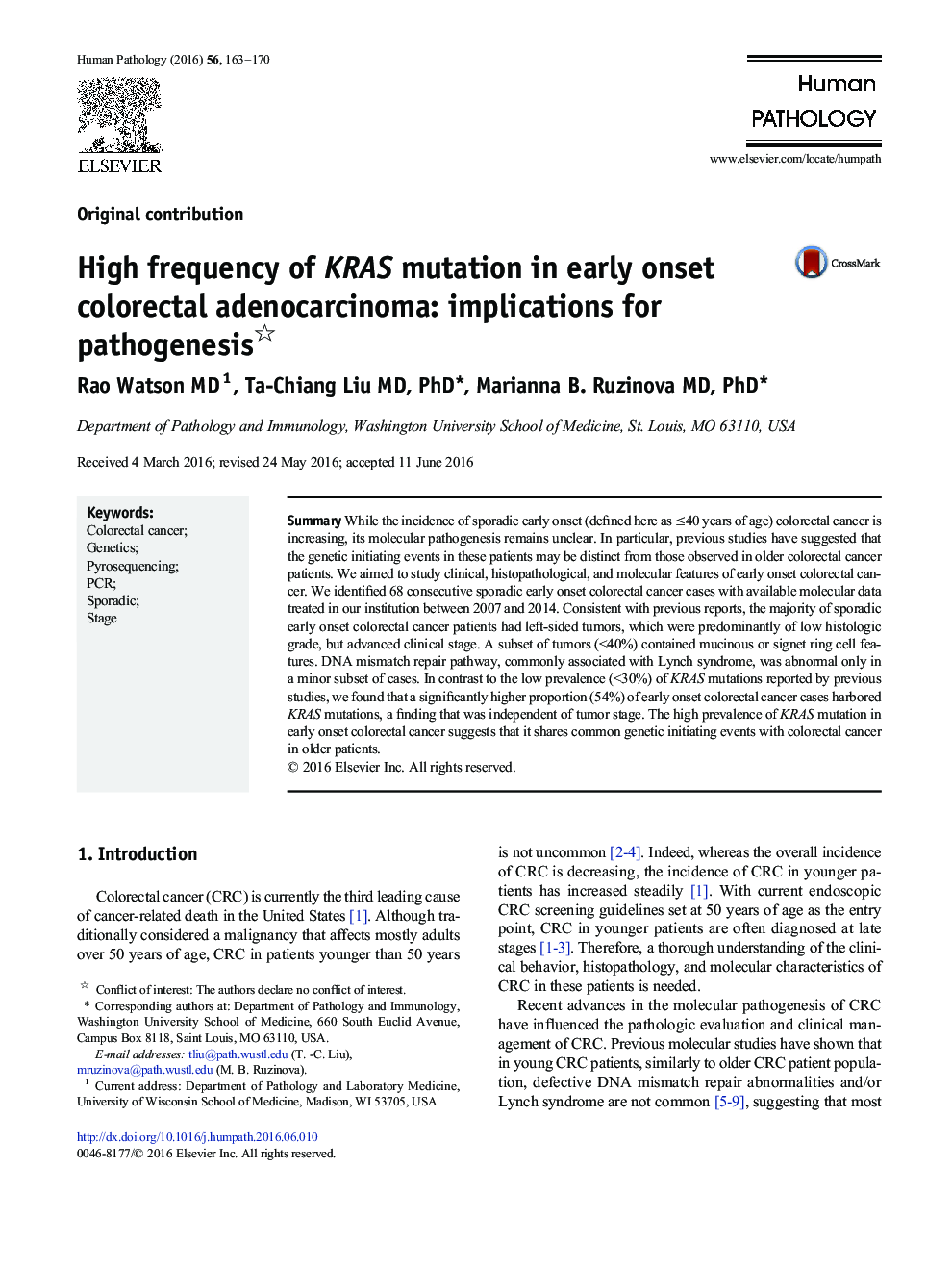| Article ID | Journal | Published Year | Pages | File Type |
|---|---|---|---|---|
| 4132413 | Human Pathology | 2016 | 8 Pages |
SummaryWhile the incidence of sporadic early onset (defined here as ≤40 years of age) colorectal cancer is increasing, its molecular pathogenesis remains unclear. In particular, previous studies have suggested that the genetic initiating events in these patients may be distinct from those observed in older colorectal cancer patients. We aimed to study clinical, histopathological, and molecular features of early onset colorectal cancer. We identified 68 consecutive sporadic early onset colorectal cancer cases with available molecular data treated in our institution between 2007 and 2014. Consistent with previous reports, the majority of sporadic early onset colorectal cancer patients had left-sided tumors, which were predominantly of low histologic grade, but advanced clinical stage. A subset of tumors (<40%) contained mucinous or signet ring cell features. DNA mismatch repair pathway, commonly associated with Lynch syndrome, was abnormal only in a minor subset of cases. In contrast to the low prevalence (<30%) of KRAS mutations reported by previous studies, we found that a significantly higher proportion (54%) of early onset colorectal cancer cases harbored KRAS mutations, a finding that was independent of tumor stage. The high prevalence of KRAS mutation in early onset colorectal cancer suggests that it shares common genetic initiating events with colorectal cancer in older patients.
